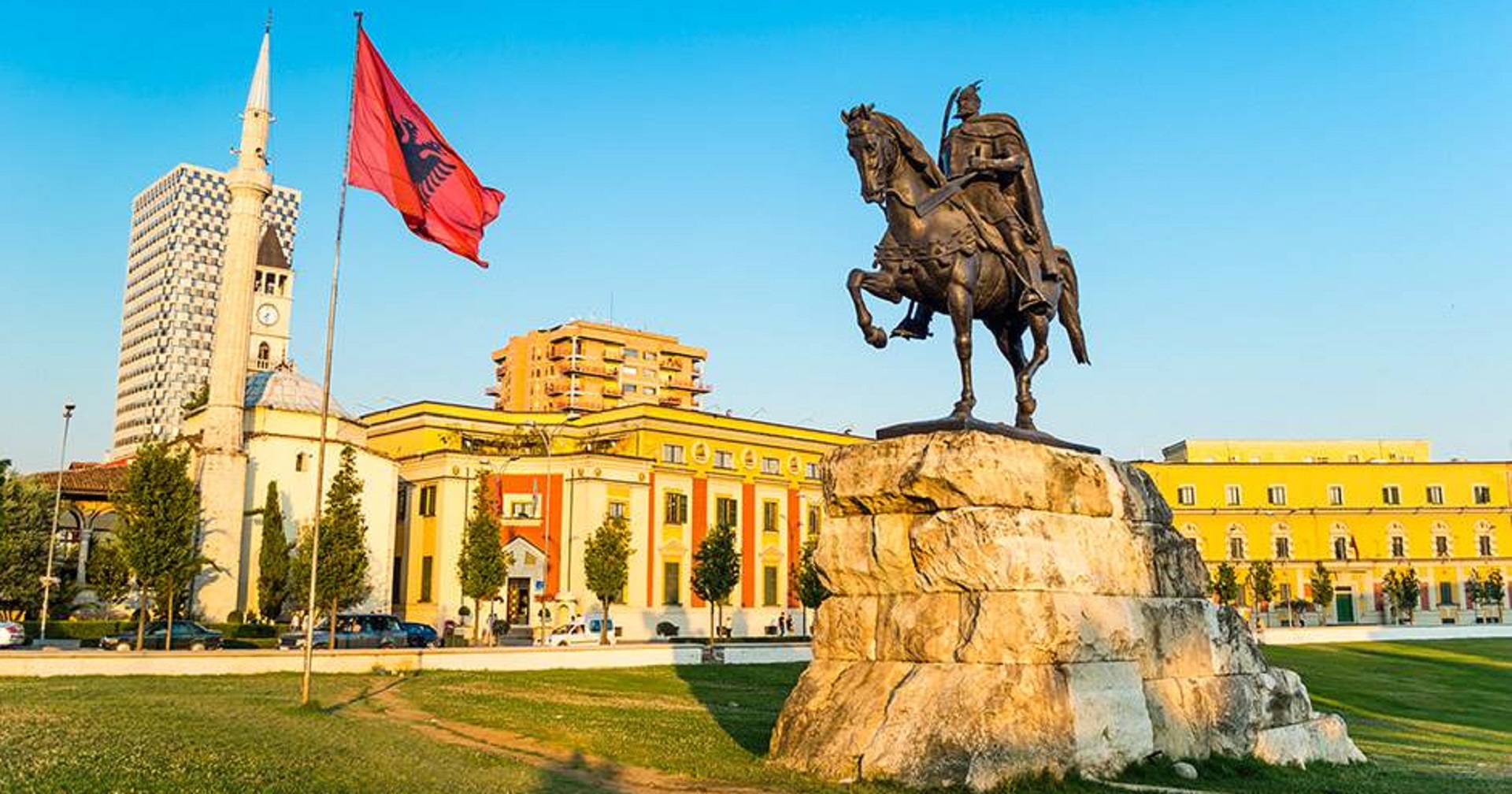The announcement that a monument dedicated to the Albanian historical hero Skenderbeg will be built in Montenegro has yet again opened up a debate in the country about his origins.
Albanian political parties in Montenegro on Wednesday accused the pro-Serbian Democratic Front alliance of unfoundedly “claiming” the Albanian national hero Skenderbeg by saying he was a Serb.
Their reaction came after the Democratic Front welcomed an initiative by the local authorities in the majority Albanian town of Ulcinj to build a monument to Skenderbeg, saying that he was a “great and celebrated hero – a born Serb”.
An official from the Albanian Alternative, Nik Djeljosaj, said this was “a myth created by the Serbian Academy of Science and Arts, SANU”.
“And about Skenderbeg, not only do the Serbs want him but also the Greeks and Bulgarians. Not only him, but also Mother Theresa and other well-known Albanian figures,” Djilosaj told Montenegrin newspaper Vijesti.
Considered a heroic leader of resistance to the Ottomans in Albania, George Castriot (Gjergj Kastrioti), known as ‘Skenderbeg’ (‘Lord Alexander’) – was conscripted as a child into the Ottoman Army, serving the sultans loyally and professing Islam.
But in 1443, he defected, threw off the Islamic faith and seized the town of Kruje. From this base, he united quarrelling Albanian princes under his banner and saw off one Ottoman invasion after another until his death from malaria in 1468.
Skenderbeg’s military feats against the Turks earned him the hearty admiration of the Popes and many other rulers in the West. But their admiration was rarely backed up by hard cash, which hampered his ability to deliver the Turks a knockout blow.
After his death, the Albanians became disunited and the Ottomans soon overran the country. Skenderbeg’s memory lived on, however, in spite of the fact that most Albanians had by then converted to Islam, a faith he determinedly renounced.
His emblem, the imperial double-headed eagle, remains the symbol of Albanian nationality to this day.
Some Serbian organisations and parties over the years have cited local historians’ research about the origins of Skenderbeg which claims that he had a Slavic background and that his mother was ethnic Serb.
These pieces of research, although sharply criticised by Montenegrin and Albanian historians, also claim that Skenderbeg’s first name was not Gjergje but Djuradj, which was a Slavic name from that period.
The initiative to build a monument to Skenderbeg in another majority Albanian town, Tuzi, near the capital Podgorica, also sparked fierce debate in April.
While Albanian parties defended the initiative, saying Skenderbeg is the national hero of all Albanians who will mark 550 years of his birth this year, the pro-Serbian organisations and some local historians said the monument could be seen as “marking out Albanian territory” inside Montenegro.
The local authorities in Ulcinj said that the Albanian diaspora will fund the monument’s construction. They said the preliminary design is complete and the local government has obtained permission from the Ministry of Culture for the monument.
balkaninsight.com / balkantimes.press
Napomena o autorskim pravima: Dozvoljeno preuzimanje sadržaja isključivo uz navođenje linka prema stranici našeg portala sa koje je sadržaj preuzet. Stavovi izraženi u ovom tekstu autorovi su i ne odražavaju nužno uredničku politiku The Balkantimes Press.
Copyright Notice: It is allowed to download the content only by providing a link to the page of our portal from which the content was downloaded. The views expressed in this text are those of the authors and do not necessarily reflect the editorial policies of The Balkantimes Press.

